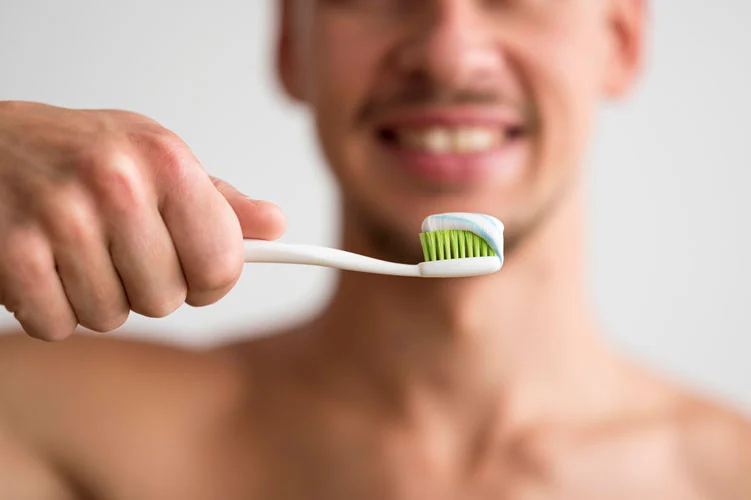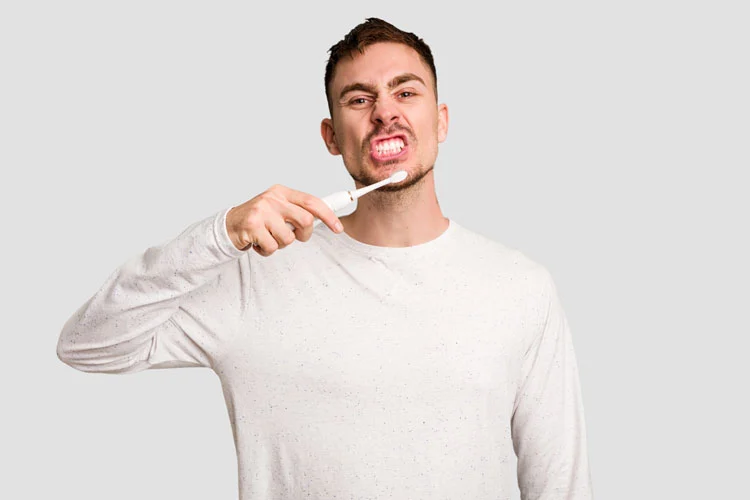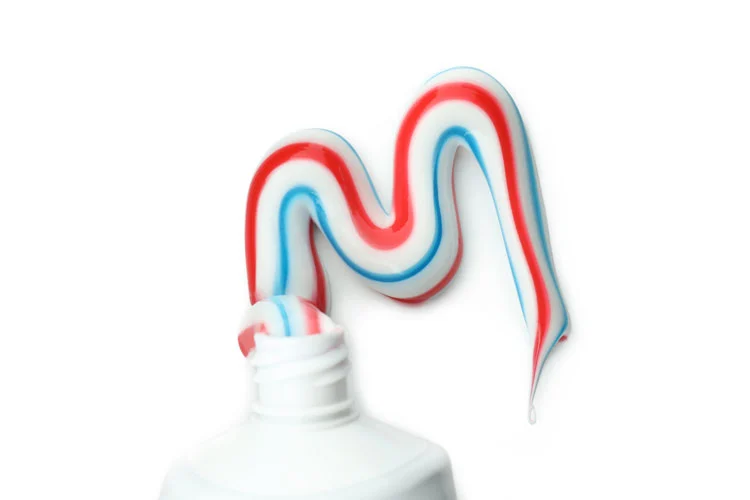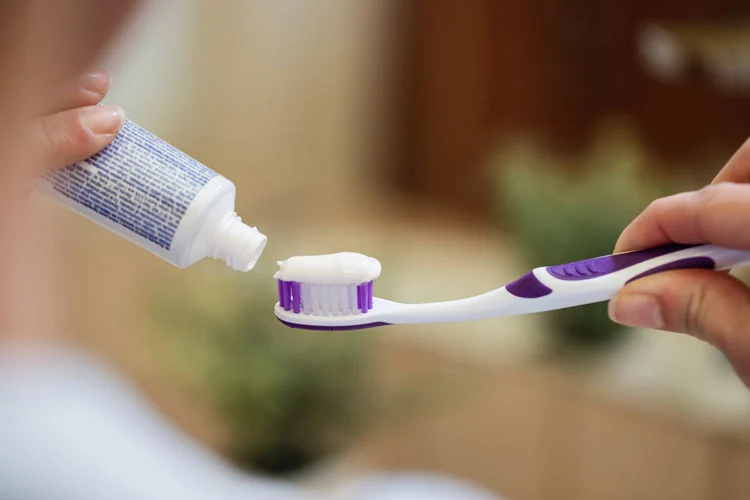How to Choose the Right Toothbrush and Toothpaste for Your Family
Maintaining good oral hygiene is crucial for a healthy and happy smile, and choosing the right toothbrush and toothpaste is an integral part of that. With so many options available, it can be overwhelming to know where to start. In this article, we’ll provide some helpful tips on choosing the right dental care products for your family.

Choosing the Right Toothbrush
While toothpaste can contribute to the effectiveness of toothbrushing by providing additional benefits such as fluoride or antimicrobial agents, the mechanical action of brushing with a toothbrush is what ultimately removes plaque and debris from teeth and gums, making it a more crucial factor for maintaining good oral health.
When it comes to toothbrushes, there are several factors to consider:
Bristles
When choosing the right bristle hardness for a toothbrush, it’s important to consider individual factors such as the condition of the teeth and gums, personal preference, and brushing technique.
Soft bristles are generally recommended for people with sensitive teeth, receding gums, or a history of gum disease, as they are less likely to cause damage or irritation.
Medium bristle toothbrushes can be a good choice for those with healthy teeth and gums who want a little more scrubbing power. However, for most people, a soft bristled toothbrushes is still the safest and most effective option.
A hard bristle brush head is generally not recommended as it can cause enamel erosion, gum recession, and tooth sensitivity over time. It’s always a good idea to consult with a dentist or dental hygienist to determine the best toothbrush and brushing technique to keep your teeth healthy.
Size and Shape
Toothbrushes come in a variety of sizes and shapes, and it’s important to choose one that is comfortable and easy to use. Look for a brush with a head that can easily reach all areas of your mouth to remove food particles and plaque.
Electric vs. Manual

Both manual and electric toothbrushes are effective at removing plaque and promoting good oral hygiene, but there are some differences between the two.
Manual toothbrushes are affordable, widely available, and easy to use. They require no batteries or charging and come in a variety of bristle styles and sizes. However, using a manual toothbrush requires proper technique and can be difficult for people with limited mobility or dexterity.
On the other hand, an electric toothbrush can be more expensive and require batteries or charging, but they can provide a more thorough and efficient cleaning. They also often come with features like timers or pressure sensors to ensure proper brushing technique.
Ultimately, both brushes can prevent against tooth decay and gum disease when used properly.
Choosing the Right Toothpaste
Toothpaste comes in many different types, flavors, and formulations. As discussed above, brushing technique is more important for overall oral health than the type of toothpaste used, but each comes with a variety of benefits that can include that fresh-mouth feeling.
Here are some things to keep in mind when choosing the right toothpaste for your family:

Fluoride toothpaste
Look for a toothpaste that contains fluoride, as it helps to strengthen tooth enamel and prevent cavities. However, consult your dentist first if you prefer a natural or fluoride-free option.
Whitening
Whitening toothpastes are formulated to remove surface stains on teeth and make them appear brighter. They typically contain mild abrasives and chemicals like hydrogen peroxide or baking soda that work to break down stains and improve the appearance of teeth.
However, it’s important to note that whitening toothpastes may not be effective for deep stains or discoloration caused by factors like genetics or certain medications.
Some whitening toothpaste can be abrasive and may cause enamel erosion or tooth sensitivity if used excessively or incorrectly. It’s best to consult with a dentist before using a whitening toothpaste to ensure it’s safe and appropriate for individual needs.
Toothpaste for Sensitive teeth
If you or a family member has sensitive teeth, look for a toothpaste that is specifically designed for sensitive teeth. These formulas contain ingredients that can help to reduce sensitivity and discomfort.
Flavor
Toothpaste comes in a variety of flavors, from mint to fruit to bubblegum. Choose a flavor that your family enjoys, as this can make brushing more enjoyable and encourage good habits.
When choosing the right toothbrush and toothpaste for your family, consider factors such as bristle softness, size and shape, electric vs. manual, fluoride, whitening, sensitivity, and flavor. And don’t forget to consult with your dentist for personalized recommendations based on your family’s unique needs. By choosing the right products and practicing good oral hygiene habits, you can help ensure that your family’s smiles stay healthy and happy for years to come.
FAQs on Oral Hygiene
Why do my teeth feel sensitive?
Teeth feel sensitive due to worn enamel or exposed roots, often caused by aggressive brushing or gum recession. Maintain gentle brushing with a soft-bristle toothbrush to alleviate sensitivity.
Which areas get missed when I brush my teeth?
The most commonly missed areas while brushing are the gum line, back molars, and tongue. Use proper brushing techniques and consider a toothbrush with a small head to reach all areas effectively.
Should I be using a different toothbrush?
If you’re experiencing discomfort or inadequate cleaning, consider switching to a toothbrush with softer bristles or an electric toothbrush for improved results.
How often do I need professional cleanings?
Professional cleanings should be scheduled every six months, but some individuals with specific dental conditions may require more frequent visits.
Why do my gums bleed when I brush?
Gums bleed when brushing due to inflammation caused by plaque buildup or improper brushing technique. Maintain consistent oral hygiene and use a soft-bristle toothbrush with gentle pressure to reduce bleeding.
Do dentists recommend soft or medium toothbrushes?
Most dentists and dental hygienists recommend using a soft-bristled toothbrush for daily brushing. Soft bristles are gentle on the gums and teeth, and they are less likely to cause damage or irritation than medium or hard bristles.
Consult with Dr. Dalesandro & Associates

Dr. Dalesandro & Associates are exceptionally qualified Tucson dentists to care for all your general, emergency, and preventative dentistry needs.
In addition, our staff of Dental Hygienists and Dental Assistants are warm and professional. Plus, we serve multiple family members, from young children to adults. Whatever your needs from preventative care, to restorative such as cavity fillings, to even emergency first aid services for accidents, we do it all.
The Family Dental Practice Tucson Trusts
Dr. Dalesandro & Associates
At our Tucson dentist office we strive to make our clients feel safe and proud of their smiles! We keep our dental office clean and ready for your appointment.
Contact us today and set up your first visit with the Dr. Dalesandro dental care team by continuing to explore our website.